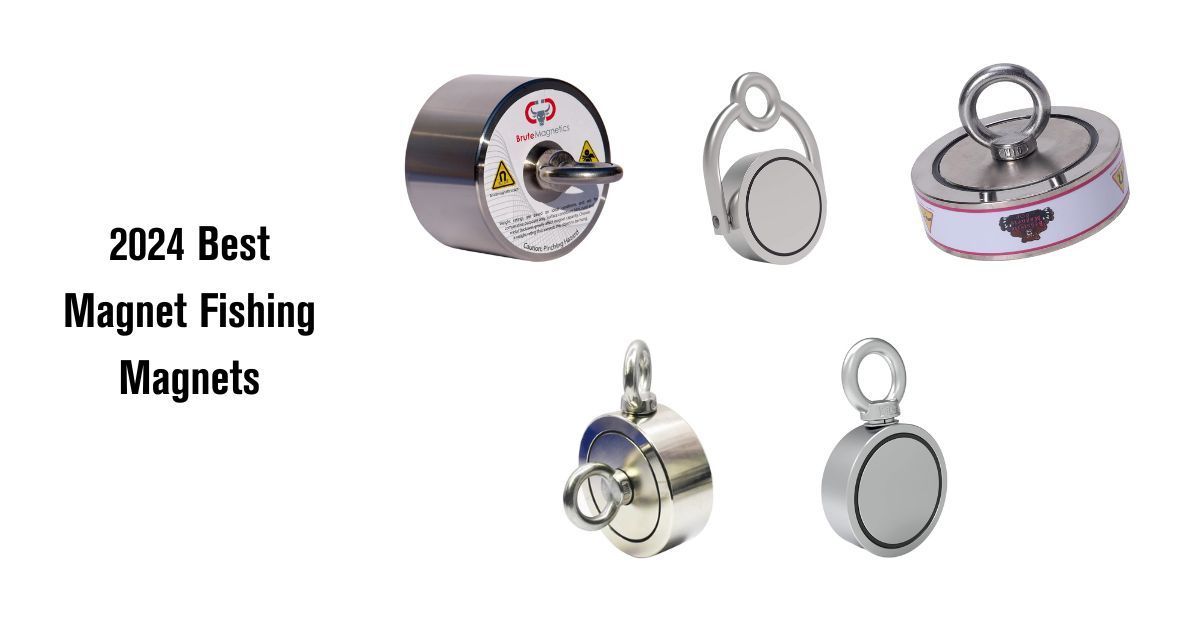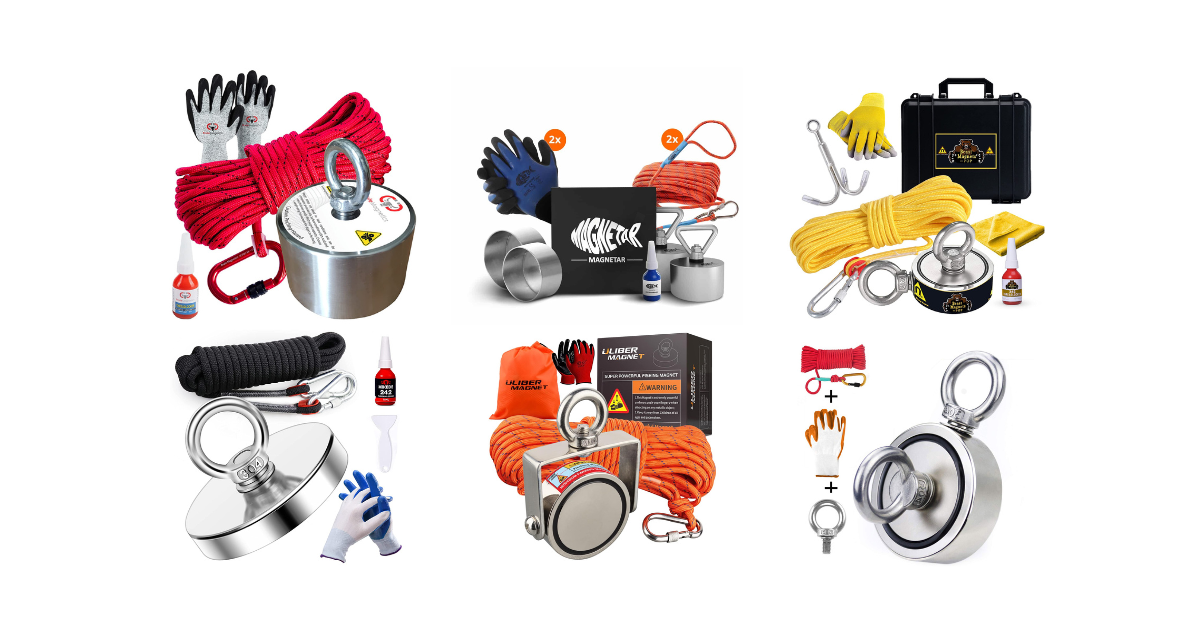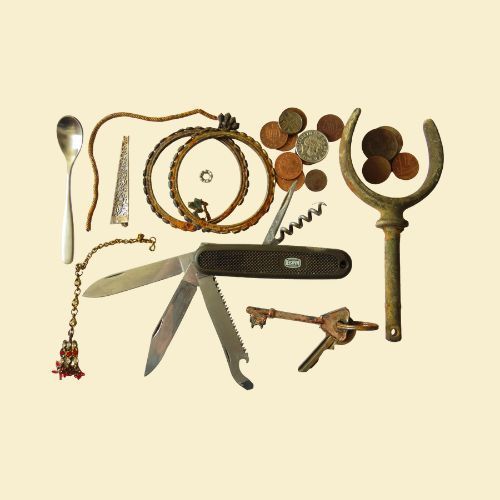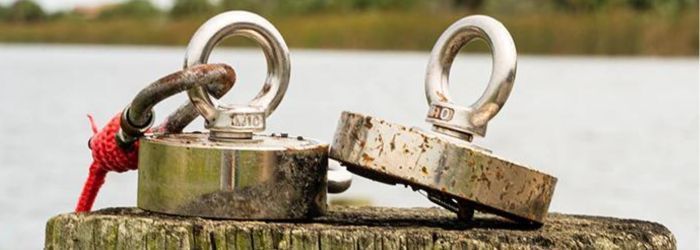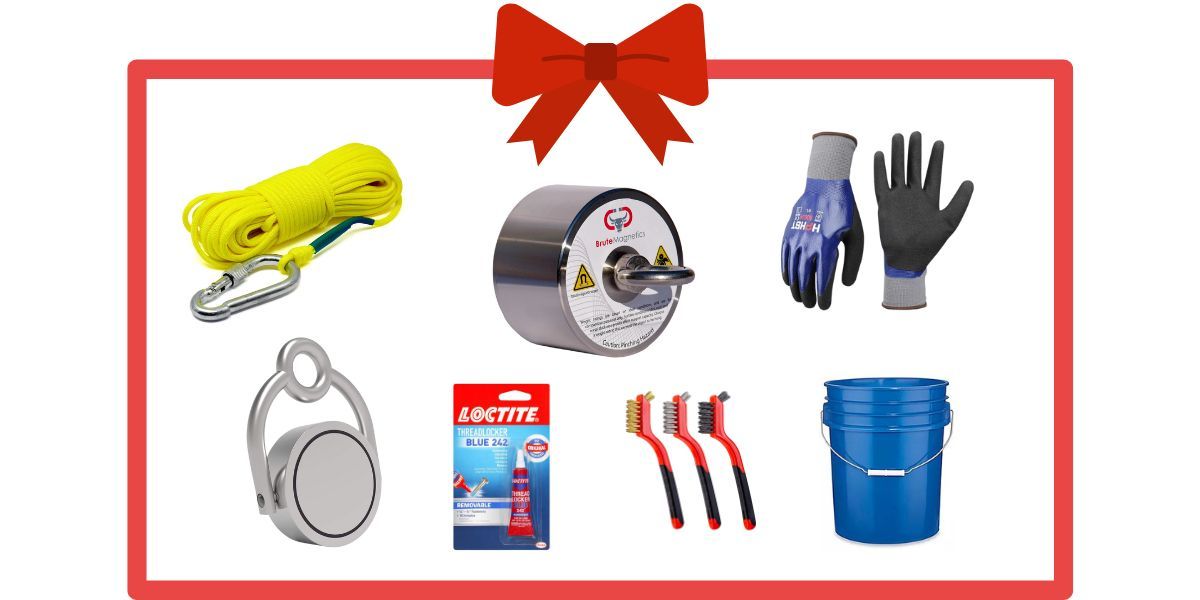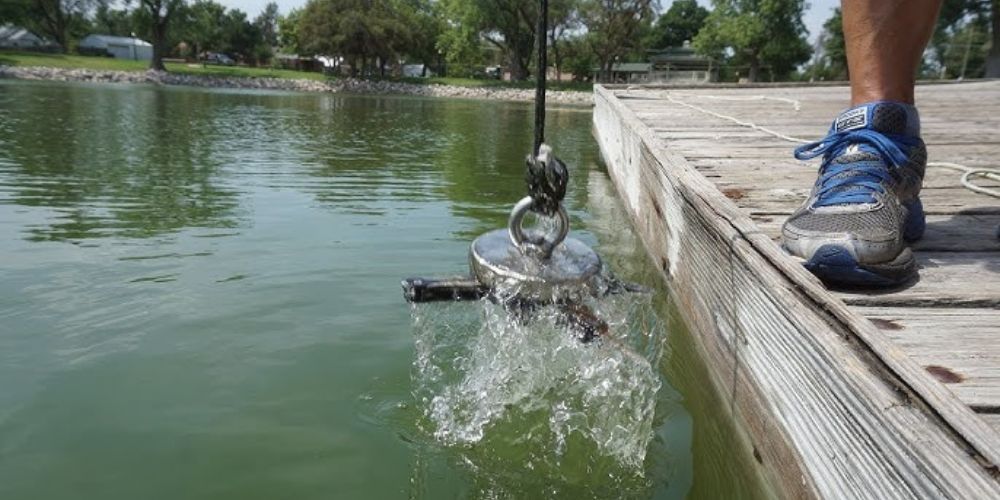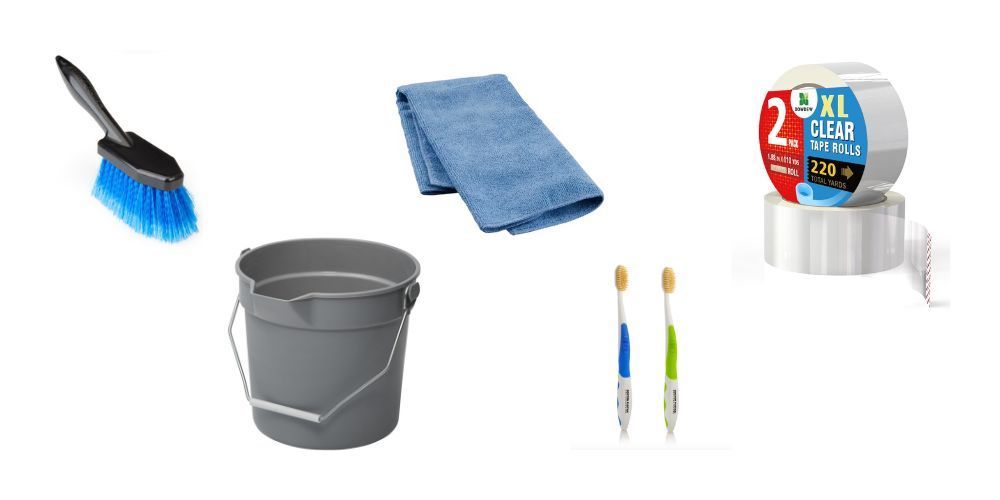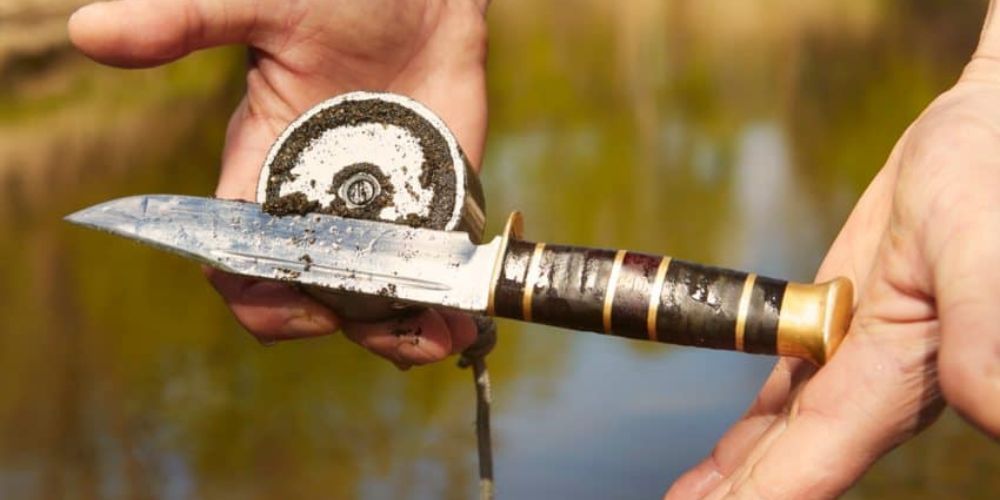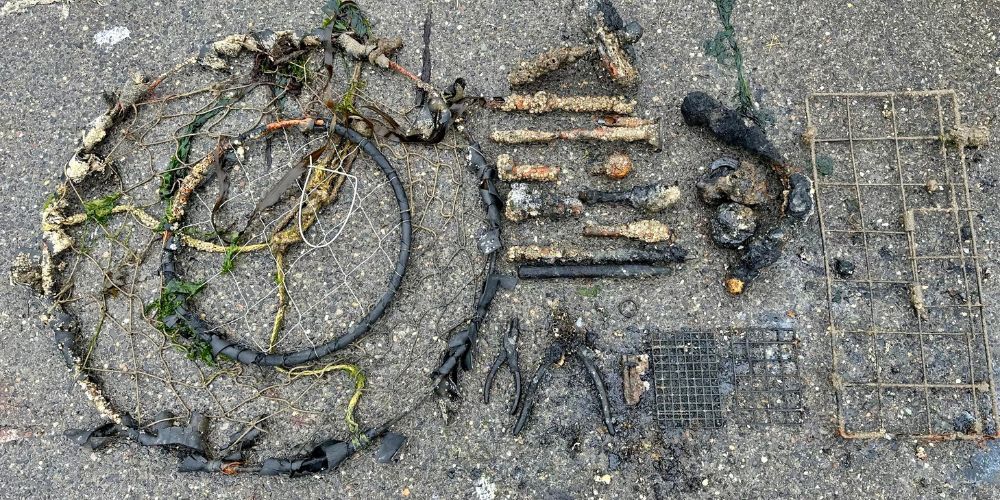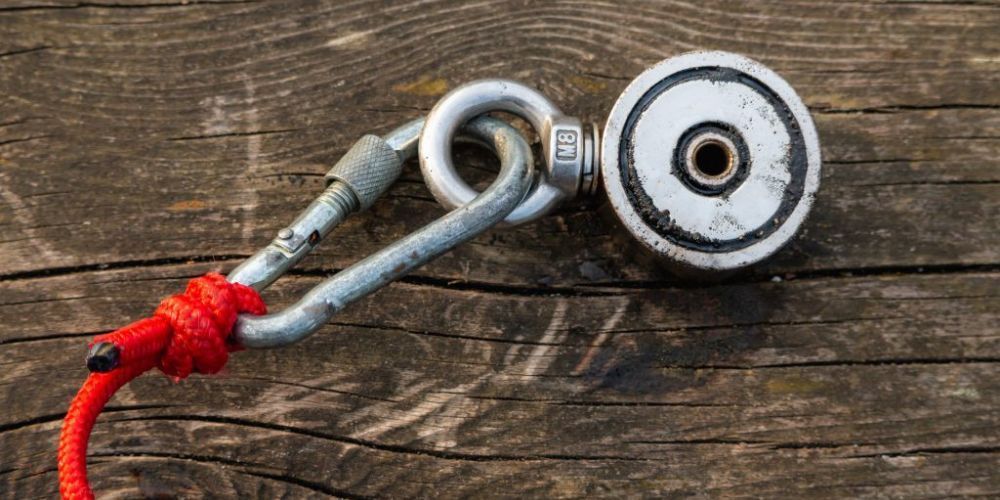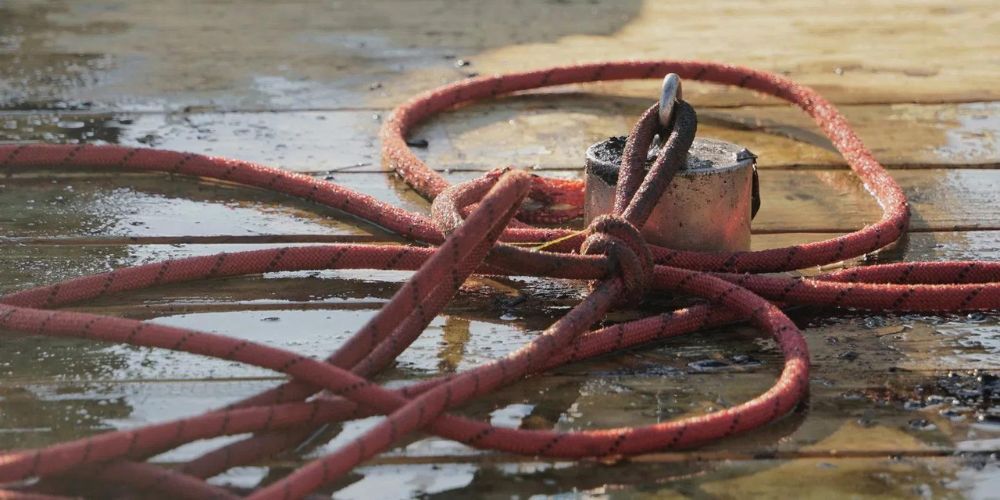Essential Cleaning & Maintenance Supplies for Magnet Fishing Finds
There's nothing quite like the thrill of hauling a mysterious metallic object from the depths of a lake or river. But the real transformation happens when you take that rusty, mud-covered discovery and restore it to reveal its true character. Whether you've pulled up a vintage coin or an old wrench, having the right cleaning and maintenance supplies can make all the difference in preserving your magnet fishing treasures.
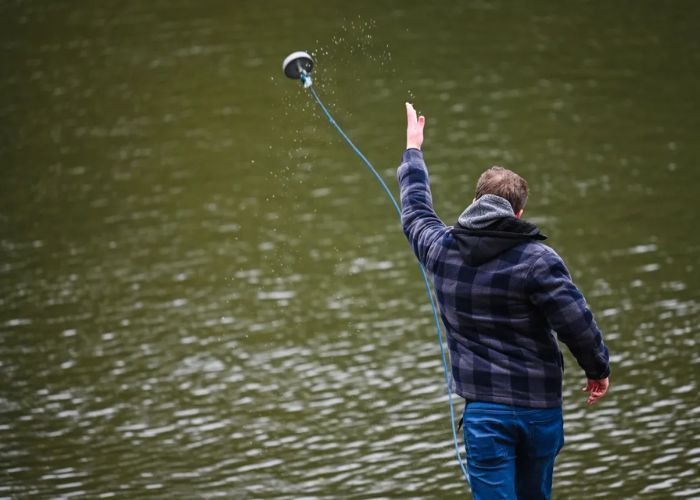
Essential Cleaning Supplies for Your Magnet Fishing Kit
Rust Removers
Every magnet fisher's arsenal should include at least one good rust remover. Phosphoric acid-based solutions like Naval Jelly work wonders on heavy rust, while white vinegar offers a gentler, eco-friendly alternative for light surface rust. For stubborn cases, products like Evapo-Rust provide a non-toxic, biodegradable option that's safe for most metals. Remember to always wear gloves and work in a well-ventilated area when using chemical rust removers.
Wire and Nylon Brush Kits
A comprehensive brush kit is your best friend when it comes to cleaning finds. Steel wire brushes tackle heavy rust and caked-on mud, while brass brushes are perfect for softer metals like copper and brass without causing scratches. Nylon brushes work best for delicate items or final polishing. Having various sizes ensures you can clean everything from coin details to large surface areas effectively.
Basic Cleaning Solutions
Start with the basics: warm water and dish soap for initial cleaning. For tougher grime, a 50/50 mixture of water and white vinegar creates an effective, natural cleaning solution. Simple Green or other biodegradable cleaners work well for greasy finds, while specialized metal cleaners can help restore shine to specific metals.
Protective Supplies and Maintenance Tools
Oils and Lubricants
After cleaning, protection is key. WD-40 displaces moisture and provides temporary rust protection, while 3-in-1 oil offers longer-lasting protection for tools and moving parts. For seized mechanisms, penetrating oils like PB Blaster can work miracles. Always apply oils in thin layers and wipe off excess to prevent attracting dirt.
Sealants and Coatings
For long-term preservation, consider using clear coat sprays designed for metal. Renaissance Wax is a museum-grade option perfect for historical finds, while Rust-Oleum provides affordable protection for everyday items. Apply sealants only after thorough cleaning and drying to avoid trapping moisture.
Storage Supplies
Proper storage prevents future deterioration. Use airtight containers with silica gel packets to control moisture. Acid-free tissue paper helps prevent scratches between items, while labeled zip-lock bags keep small finds organized. Create a simple cataloging system with photos and notes about where and when items were found.
Caring for Your Magnet Fishing Equipment
Magnet Maintenance
Your magnet requires care too. After each trip, rinse it thoroughly with fresh water to remove sand and debris. Dry completely and apply a light coat of oil to prevent rust. Inspect the eyebolt regularly for wear, and check that the protective coating remains intact.
Rope and Grappling Hook Care
Inspect your rope for fraying or weak spots after each use. Wash it with mild soap to remove grit that can damage fibers. Your grappling hook should be cleaned, dried, and lightly oiled. Replace any components showing significant wear to ensure safety during your next adventure.
Step-by-Step Cleaning Process for Common Finds
Small Metal Objects
- Remove loose dirt with water
- Soak in vinegar solution if needed
- Scrub with appropriate brush
- Rinse thoroughly
- Dry completely
- Apply protective coating
Larger Historical Relics
For potentially valuable historical items, start with gentle cleaning methods. Document the item's condition before cleaning. Consider consulting with local historical societies before aggressive cleaning, as some patina may be historically significant.
Safety Tips and Best Practices
Always prioritize safety when cleaning finds. Wear gloves, safety glasses, and work in ventilated areas. Be cautious with unknown objects that could be dangerous (unexploded ordnance, sharp edges). Dispose of chemicals properly and never pour them down drains.
Recommended Products and Brands
Budget-friendly options:
- White vinegar and baking soda
- Hardware store wire brushes
- WD-40 for basic protection
Professional grade:
- Evapo-Rust for serious restoration
- Renaissance Wax for preservation
- Dremel tools for detailed cleaning
Troubleshooting Common Cleaning Challenges
Stubborn Rust
For rust that won't budge, try electrolysis cleaning or extended soaking in rust remover. Sometimes multiple treatments are necessary.
Dealing with Pitted Metal
Pitting can't be reversed, but you can prevent further damage. Clean thoroughly, fill deep pits with epoxy if desired, and seal well.
Building a comprehensive cleaning kit transforms magnet fishing from a hobby into a preservation mission. With the right supplies, you can bring history back to life while ensuring your equipment stays in top condition. Start with the basics and expand your kit as you discover what works best for your finds. Remember, proper cleaning and maintenance not only preserves your treasures but also respects the environment by removing harmful debris from our waterways.
Happy fishing, and may your next find be your best yet!
How often should I clean my magnet fishing equipment?
Clean your magnet, rope, and hook after every use. Rinse with fresh water, dry thoroughly, and apply a light coat of oil to prevent rust and extend equipment life.
Can I use household cleaners on my finds?
Yes, mild dish soap and white vinegar work well for most items. Avoid bleach or harsh chemicals that could damage metal or historical patina.
What should I do if I find something potentially valuable?
Document the find's condition before cleaning. Use gentle methods first and consider consulting a local museum or historical society before aggressive restoration.
Author: Will Flaiz


